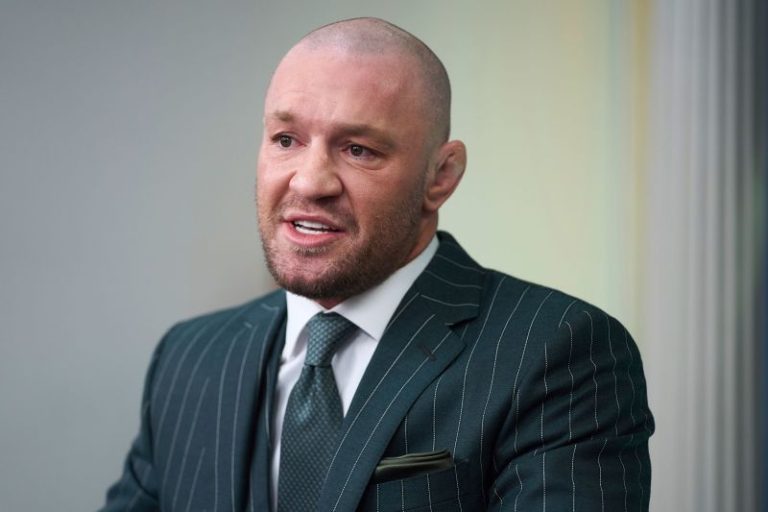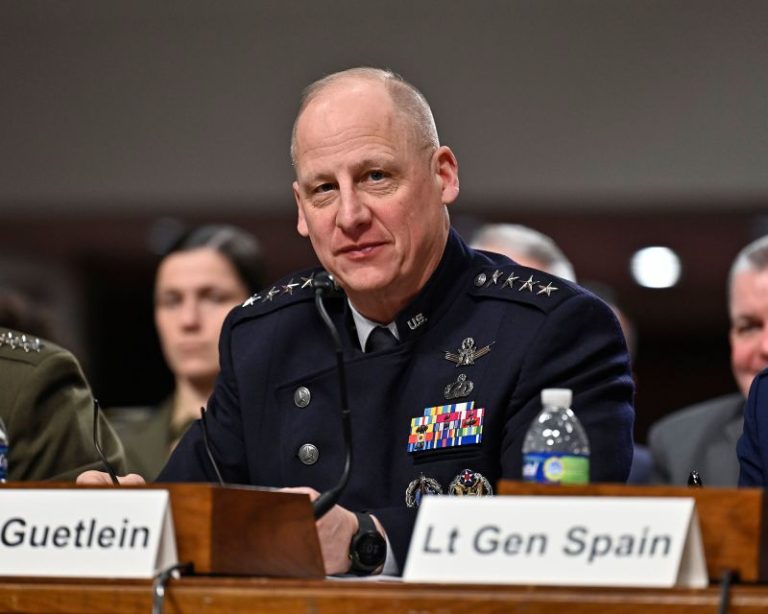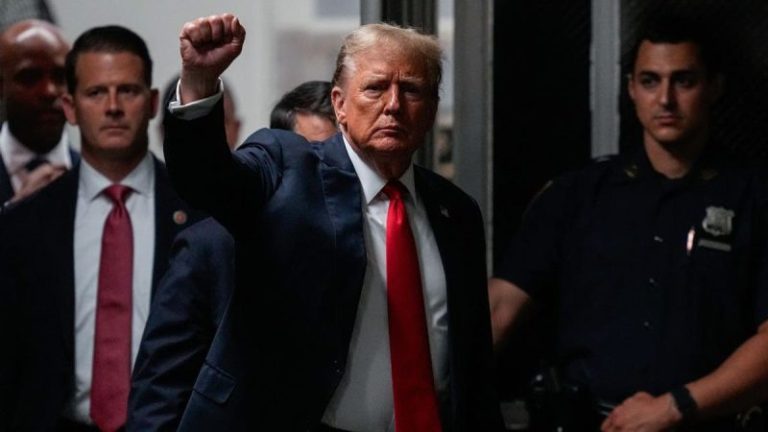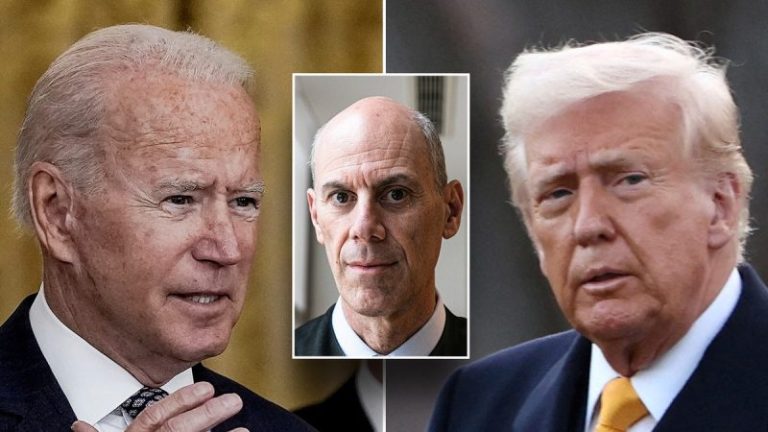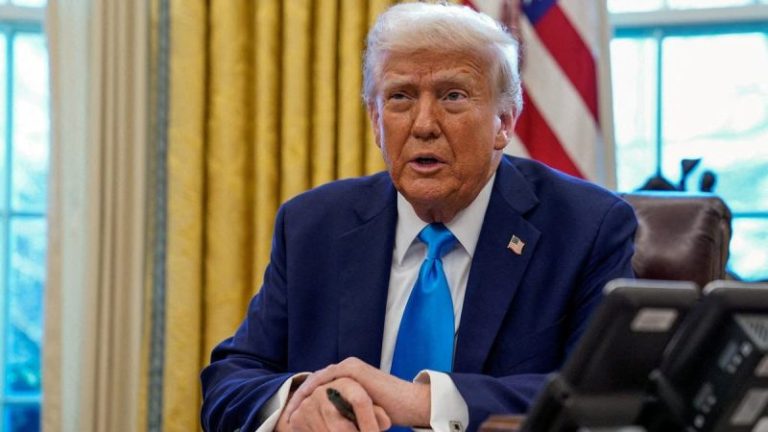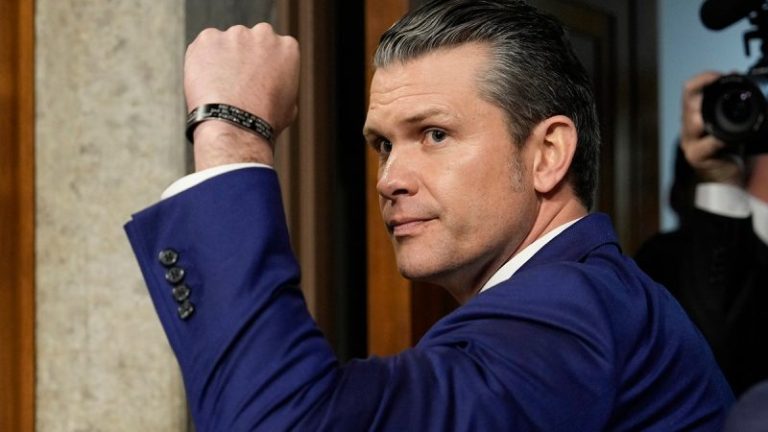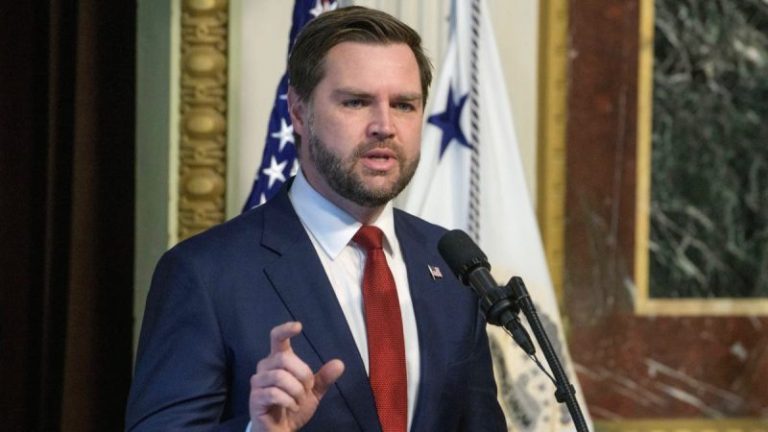The recent wave of preliminary injunctions from federal judges has stymied President Donald Trump’s early agenda in his second White House term, prompting new questions as to how far the administration might go if it opts to challenge these court orders.
Federal judges across the country have blocked Trump’s ban on transgender persons serving in the U.S. military, ordered the reinstatement of core functions of the U.S. Agency for International Development, or USAID, and halted Elon Musk’s government efficiency organization, DOGE, from oversight and access to government agencies, among other things. They’ve also temporarily halted deportations, or attempted to, so judges can consider the relevant laws.
Combined, the wave of rulings has been met with outrage from Trump administration officials, some of whom said they plan to appeal the rulings to the Supreme Court, if needed. White House press secretary Karoline Leavitt has used her podium to rail against ‘radical left-wing judges,’ who she has alleged are acting with a political agenda to block Trump’s executive orders.
‘These judicial activists want to unilaterally stop President Trump from deporting foreign terrorists, hiring and firing executive branch employees, and determining the readiness of our troops,’ Leavitt said on X, expanding on remarks made Wednesday at a press briefing.
‘They MUST be reined in,’ she added.
Some of Trump’s supporters in Congress have threatened judges who block the president’s agenda with impeachment, while his critics worry the president’s attacks on the judiciary will collapse the constitutional system, bringing to the fore an impassioned debate over the separation of powers in the Constitution.
Here’s a rundown of where things stand.
Courts block Trump agenda
U.S. District Court Judge Theodore Chuang, an Obama appointee, ruled on Tuesday that DOGE’s efforts to dismantle USAID ‘on an accelerated basis’ likely violated the U.S. Constitution ‘in multiple ways’ and ordered the partial restoration of the agency’s functions, including reinstatement of personnel access to email and payment systems.
Chuang’s preliminary injunction is believed to be the first to directly invoke Musk himself. It said Musk could interact with USAID employees only after being granted ‘express authorization’ from an agency official, and it blocked DOGE from engaging in any further work at USAID.
Hours later, U.S. District Court Judge Ana Reyes issued a preliminary injunction barring the Pentagon from enforcing Trump’s order on transgender persons serving in the military.
Reyes, the first openly gay member of the court, wrote in a scathing 79-page ruling that the Trump administration failed to demonstrate that transgender service members would hinder military readiness, relying on what she described as ‘pure conjecture’ to attempt to justify the policy and thus causing undue harm to thousands of current U.S. service members.
Both rulings are almost certain to be challenged by the Trump administration. In fact, Reyes was so confident that the Justice Department would file an emergency appeal that she delayed her ruling from taking force until Friday to allow the Trump administration time to file for an emergency stay.
Reyes wasn’t wrong. Senior administration officials vowed to challenge the wave of court rulings, which they said are an attempt by the courts to unduly infringe on presidential powers.
‘We are appealing this decision, and we will win,’ Secretary of Defense Pete Hegseth said on social media.
‘District court judges have now decided they are in command of the Armed Forces…is there no end to this madness?’ White House policy adviser Stephen Miller said later in a post on X.
Several other high-profile cases are playing out in real time that could test the fraught relationship between the courts and the executive branch, and next steps remain deeply uncertain.
U.S. District Court Judge James Boasberg warned the Trump administration on Wednesday that it could face consequences for violating his court order temporarily blocking it from invoking a little-known wartime law to immediately deport Venezuelan nationals from U.S. soil, including alleged members of the gang Tren de Aragua, for 14 days.
Boasberg handed down the temporary restraining order Saturday evening, around the time that the Trump administration proceeded to deport hundreds of migrants, including Venezuelan nationals subject to the Alien Enemies Act, to El Salvador. He also ordered in a bench ruling shortly after that any planes carrying these individuals return to the U.S.
But at least one plane with migrants deported by the law in question touched down later that evening in El Salvador.
‘Oopsie, too late,’ El Salvador’s president said in a post on X.
In the days since, government lawyers citing national security protections have refused to share information in court about the deportation flights and whether the plane (or planes) of migrants knowingly departed U.S. soil after the judge ordered them not to do so.
The White House has repeatedly asserted that lower court judges like Boasberg should not have the power to prevent the president from executing what it argues is a lawful agenda, though the judges in question have disagreed that the president’s actions all follow the law.
‘A single judge in a single city cannot direct the movements of an aircraft carrier full of foreign alien terrorists who were physically expelled from U.S. soil,’ Leavitt told Fox News.
Trump’s border czar, Tom Homan, said in an interview on ‘Fox & Friends’ this week: ‘We are not stopping.’
‘I don’t care what the judges think. I don’t care what the left thinks. We’re coming,’ Homan said, adding, ‘Another fight. Another fight every day.’
Relief on the way?
The administration’s appeals, which are all almost guaranteed, may have a better chance of success than previous cases that reached appellate courts, including one in which the Supreme Court ruled against the president.
There are two types of near-term relief that federal judges can offer plaintiffs before convening both parties to the court for a full case on the merits: a preliminary injunction and a temporary restraining order, or a TRO.
A TRO immediately blocks an action for 14 days to allow more time for consideration. But it’s a difficult test for plaintiffs to satisfy: they must prove that the order in question would pose immediate and ‘irreparable harm’– an especially burdensome level of proof, especially if it hinges on an action or order that has not yet come into force.
The outcomes, as a result, are very narrow in scope. One could look to the TRO request granted by U.S. District Court Judge Amir Ali earlier this month, which required the Trump administration to pay out $2 billion in owed money for previously completed USAID projects.
Since it did not deal with current contracts or ongoing payments, the Supreme Court, which upheld Ali’s ruling, 5-4, had little room to intervene.
The request for a preliminary injunction, however, is a bit more in depth. Successful plaintiffs must demonstrate to the court four things in seeking the ruling: First, that they are likely to succeed on the merits of the claim when it is heard later on; that the balance of equities tips in their favor; that the injunction is considered within the sphere of public interest; and finally, that they are ‘likely’ to suffer irreparable harm in the absence of court action.
This wider level of discretion granted to the district courts in a preliminary injunction ruling invites much more scrutiny, and more room for the government to appeal the ruling to higher courts should they see fit.
It’s a strategy both legal analysts and even Trump himself dangled as a likely possibility as they look to enforce some of their most sweeping policy actions.
Trump suggested this week that Boasberg, tasked with overseeing the escalating deportation fight, be impeached, describing him in a post on Truth Social as a ‘crooked’ judge and someone who, unlike himself, was not elected president.
‘He didn’t WIN the popular VOTE (by a lot!), he didn’t WIN ALL SEVEN SWING STATES, he didn’t WIN 2,750 to 525 Counties, HE DIDN’T WIN ANYTHING!’ Trump said.
The post earned the rebuke of Chief Justice John Roberts, who noted that it broke with 200 years of established law. And on Thursday, Trump’s deputy chief of staff, James Blair, appeared to punt the issue to Congress.
He told Politico in an interview that Trump’s remarks were shining ‘a big old spotlight’ on what it views as a partisan decision, but noted impeaching a judge would be up to Republicans in Congress, including House Speaker Mike Johnson, who he said would ultimately ‘figure out what can be passed or not’ in Congress.
‘That’s the speaker’s job. And I won’t speak for what the speaker’s opinion of that is,’ he said. ‘I think the thing that is important right now is the president is highlighting a critical issue.’
This post appeared first on FOX NEWS

